Search Results
Showing results 1 to 13 of 13
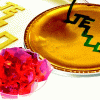
Jell-O Model of Microfluidics
Source Institutions
This activity uses Jell-O(R) to introduce learners to microfluidics, the flow of fluids through microscopic channels.

The Carbon Cycle and its Role in Climate Change: Activity 3
Source Institutions
In this activity, learners explore the human influences on the carbon cycle and examine how fossil fuels release carbon.
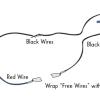
Neural Network Signals
Source Institutions
In this activity, learners create an electrical circuit and investigate how some dissolved substances conduct electricity.
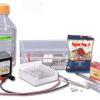
Colorful Electrophoresis
Source Institutions
In this activity, learners follow step-by-step instructions to build a gel electrophoresis chamber using inexpensive materials from local hardware and electronic stores.
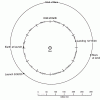
Getting There!: Navigation and Trajectory
Source Institutions
In this two-part activity, learners map a navigation plan to get from Earth to Mars and back. In activity one, learners represent the orbital paths of Earth through dance and dramatic movement.
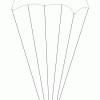
The Parachuting Egg
Source Institutions
In this activity, learners work in groups to design a parachute out of household items that keeps an egg secure when dropped from a certain height.
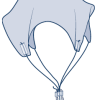
Sky Diver
Source Institutions
Students design and build their own parachutes in this hands-on engineering project.

Disease Detectives
Source Institutions
In this activity, learners examine antibodies and antibody recognition using a model.

The Carbon Cycle: How It Works
Source Institutions
In this game, learners walk through an imaginary Carbon Cycle and explore the ways in which carbon is stored in reservoirs and the processes that transport the carbon atom from one location to another

Urine the Know
Source Institutions
In this activity on page 5 of the PDF, learners compare water with artificial urine to see how urinalysis works. Learners use urinalysis test strips to test for glucose and protein in the fake urine.
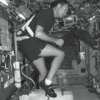
Challenge: Microgravity
Source Institutions
In this activity about the circulatory system and space travel (on page 38 of the PDF), learners use water balloons to simulate the effects of gravity and microgravity on fluid distribution in the bod

Water Treatment
Source Institutions
Water treatment on a large scale enables the supply of clean drinking water to communities.
We Have Capture!
Source Institutions
Using simple materials, learners will construct the end effector (grasping device) of a robotic arm and use the device to capture and pick up an object.
